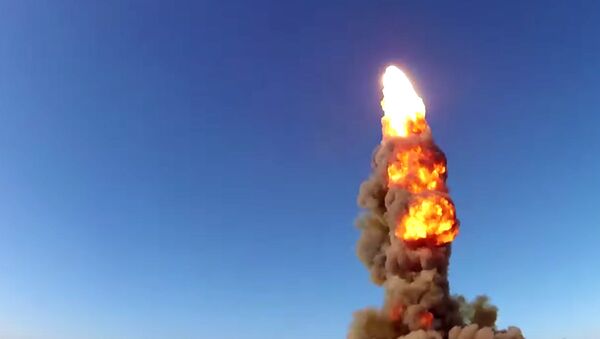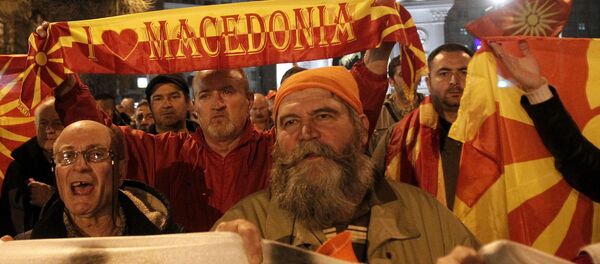"It is time now for Russia to come to the table and stop the violations," Hutchison told reporters in Brussels, where US Defense Secretary Jim Mattis will later meet his NATO counterparts.
She also noted that the US has no intentions of violating the 1987 Intermediate-Range Nuclear Forces Treaty (INF), adding, however, that it could occur because of Russia.
READ MORE: Coincidence? US State Dep't Creates Post Named After Russian Missile SARMAT
"There will come a point in the future in which America will determine that it has to move forward with a development phase that is not allowed by the treaty right now," Hutchison said.
Earlier in the day, NATO Secretary General Jens Stoltenberg urged Russia to be more transparent and to explain its alleged breaches of the INF Treaty.
Tensions and Accusations
Addressing the NATO stance on the INF, Russian Foreign Ministry spokeswoman Maria Zakharova warned about the perils of "aggressive rhetoric."
"It seems people who make such statements do not realize the degree of their responsibility and the danger of aggressive rhetoric. Who authorized the lady to make such statements? The American people? Do ordinary people in the United States know that the so-called diplomats paid out of their pocket behave aggressively and destructively?" Zakharova told reporters.
According to the US, the new Russian 9M729 missile systems violate the conditions of the pact, as they give Russia the possibility of launching a nuclear strike in Europe with little or no notice.
READ MORE: Neither Russia Nor US Interested in Undermining INF Treaty — Russian FM
Russia's Foreign Ministry has said that the 9M729 missiles correspond to Russia's obligations under the INF Treaty and have not been upgraded and tested for the prohibited ranges. Moscow also noted that Washington had never provided any evidence that Russia had violated the agreement because such proof does not exist.
Earlier in July, Russian Defense Minister Sergei Shoigu claimed that the United States is violating the treaty by deploying in Europe missile defense systems with launchers, which might be used for firing Tomahawk cruise missiles.
New Prospects for Macedonia in NATO
Hutchison also commented on the recent referendum in Macedonia, which settled a decades-long conflict with Greece, allowing Skopje to enter NATO.
"We are very pleased that they got over a 90 percent vote in the referendum that they had, and we now look to the people of Macedonia and the Parliament to take the next step and we hope to welcome Macedonia, Northern Macedonia, as a new member of our alliance in the near future," the US envoy said.
According to the Sunday referendum, 91.46% of voters chose to rename the country, while 5.65% voted against the agreement with Greece. However, the turnout amounted to just 36.91%, meaning that the referendum failed to secure the 50% turnout needed to be valid. Despite this, the country's prime minister, Zoran Zaev, supported the results and pledged to proceed with ratifying the agreement.



